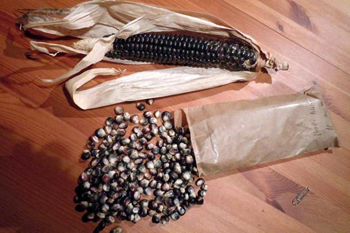Washington, Jan 14: Eating blue corn may help protect against metabolic syndrome, cardiovascular disease, diabetes and cancer, a new study carried in rats suggests.
 In the study, a rat model of metabolic syndrome fed a high-sugar and high-cholesterol diet and given blue maize extract showed significant improvement in systolic blood pressure, high density lipoprotein (HDL) cholesterol, and triglyceride levels compared to those not given the extract.
In the study, a rat model of metabolic syndrome fed a high-sugar and high-cholesterol diet and given blue maize extract showed significant improvement in systolic blood pressure, high density lipoprotein (HDL) cholesterol, and triglyceride levels compared to those not given the extract.
The natural antioxidants present in blue maize may help protect against metabolic syndrome, cardiovascular disease, diabetes and cancer, raising interest in using blue maize as a component of functional foods and nutraceuticals, researchers said.
Researchers from Universidad Veracruzana and Instituto Tecnologico de Veracruz in Mexico found that the animals fed a high-sugar and high-cholesterol diet that received blue maize extract had a significantly smaller increase in abdominal fat compared to the abdominal fat gain in rats that did not receive the extract.
“Anti-obesity food materials are always in demand, and this study brings out not only the importance of blue maize in controlling adipocity, but also the potential role of cholesterol in the development of obesity,” said Sampath Parthasarathy, from the University of Central Florida in the US.





Comments
Add new comment